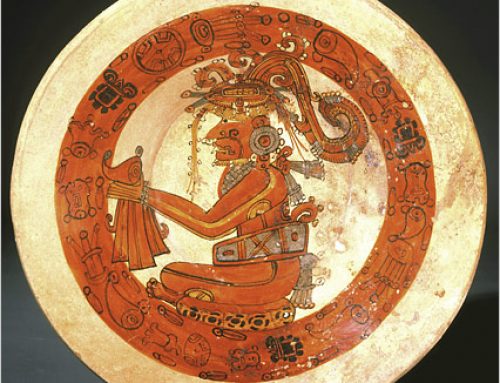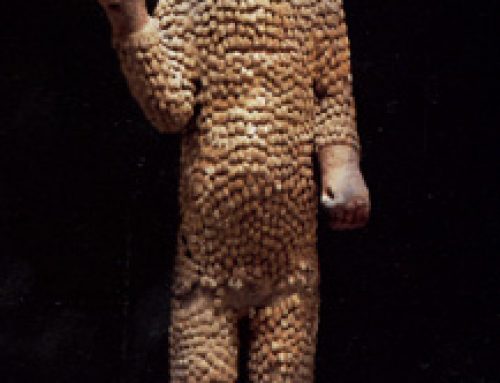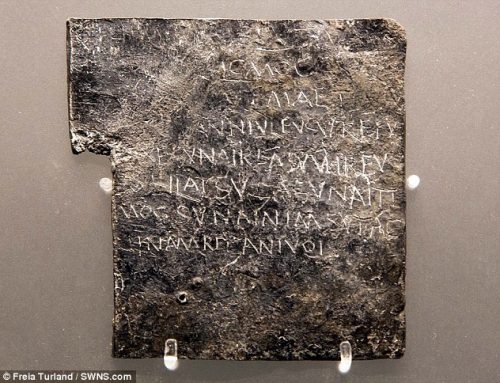
Zhou Dynasty swimmers (Sichuan bronze vessel, ca. 750 BC) from around the time of the I Ching
How old is the I Ching?
Nobody knows for sure who wrote the I Ching, or when. But most scholars think somebody wrote this book around 800 BC, during the last years of the Western Zhou Dynasty in China. That makes the I Ching the oldest piece of writing in China other than oracle bones.
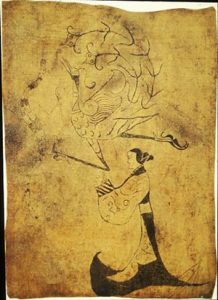
Eastern Zhou woman with phoenix bird (ca. 300 BC)
What are oracle bones?
Western Zhou Dynasty
All our China articles
What is the I Ching?
Like the earlier oracle bones, the I Ching is a collection of predictions about the future. It’s a fortune-telling book to help people predict what is going to happen in the future. Today, you might read your horoscope in the newspaper for the same reason. People wrote the first versions of the I Ching on silk cloth, because paper hadn’t been invented yet. A lot of early Chinese writing was on silk cloth, or on hemp cloth.
Where is silk from?
Chinese religion
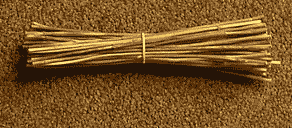
Yarrow stalks for throwing the I Ching
How to use the I Ching
I Ching means the Book of Changes. People threw three yarrow stalks (yarrow is a kind of flowering plant). Then they watched how the yarrow stalks fell. Interpreters – probably mostly religious leaders – used the pattern they saw in the yarrow stalks to choose which predictions to read. Complicated formulas told them which patterns meant which prophecy – if the stalks crossed, or lay next to each other, for example.
More about oracles
Some examples of the predictions are, “The Judgment: Peace. The small departs, the great approaches. Good fortune. Success.” or “Six at the beginning means: Enthusiasm that expresses itself brings misfortune.”. As you can see, the predictions could also be hard to understand. Probably the religious leader had to interpret them for you, because they knew your specific situation and what question you needed answered.
Could the I Ching really help you?
It’s the same as with other oracles. No, tossing yarrow sticks doesn’t tell you anything about what will happen to you in the future. But talking to your religious leader about what you should do, that can be a big help to people. This was a way to help people get comfortable asking for advice and support, so it was probably very helpful to many people.
Changes in the I Ching
By the Han Dynasty, about 100 BC, people began to throw bronze coins instead, because the coins led to more random results than the stalks of yarrow. But they still used the same book of prophecies to tell them what the patterns of bronze coins meant.

